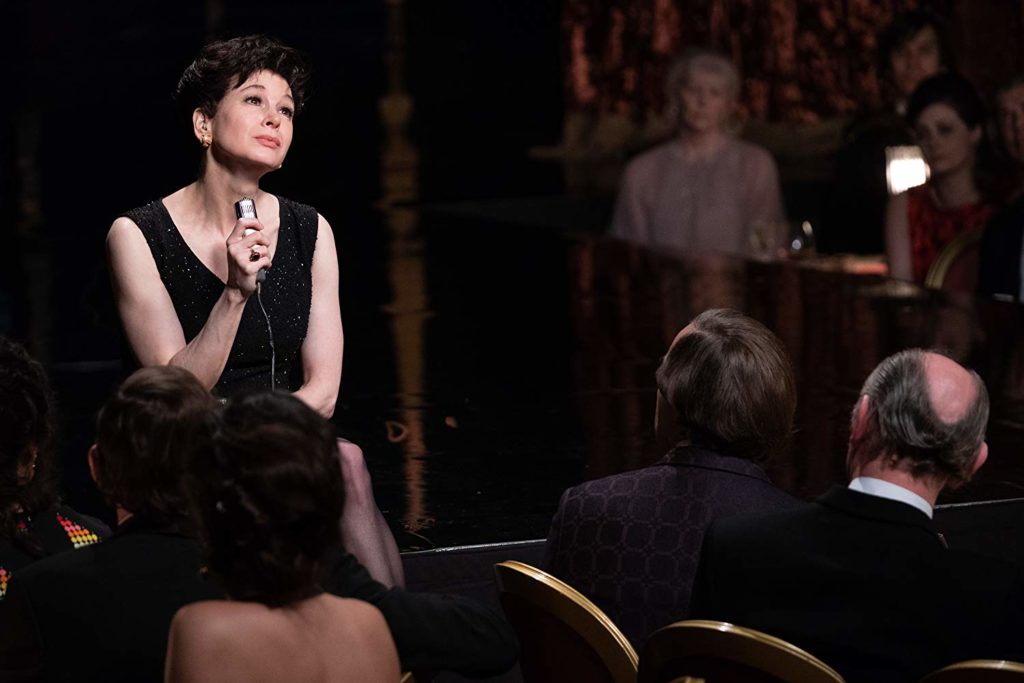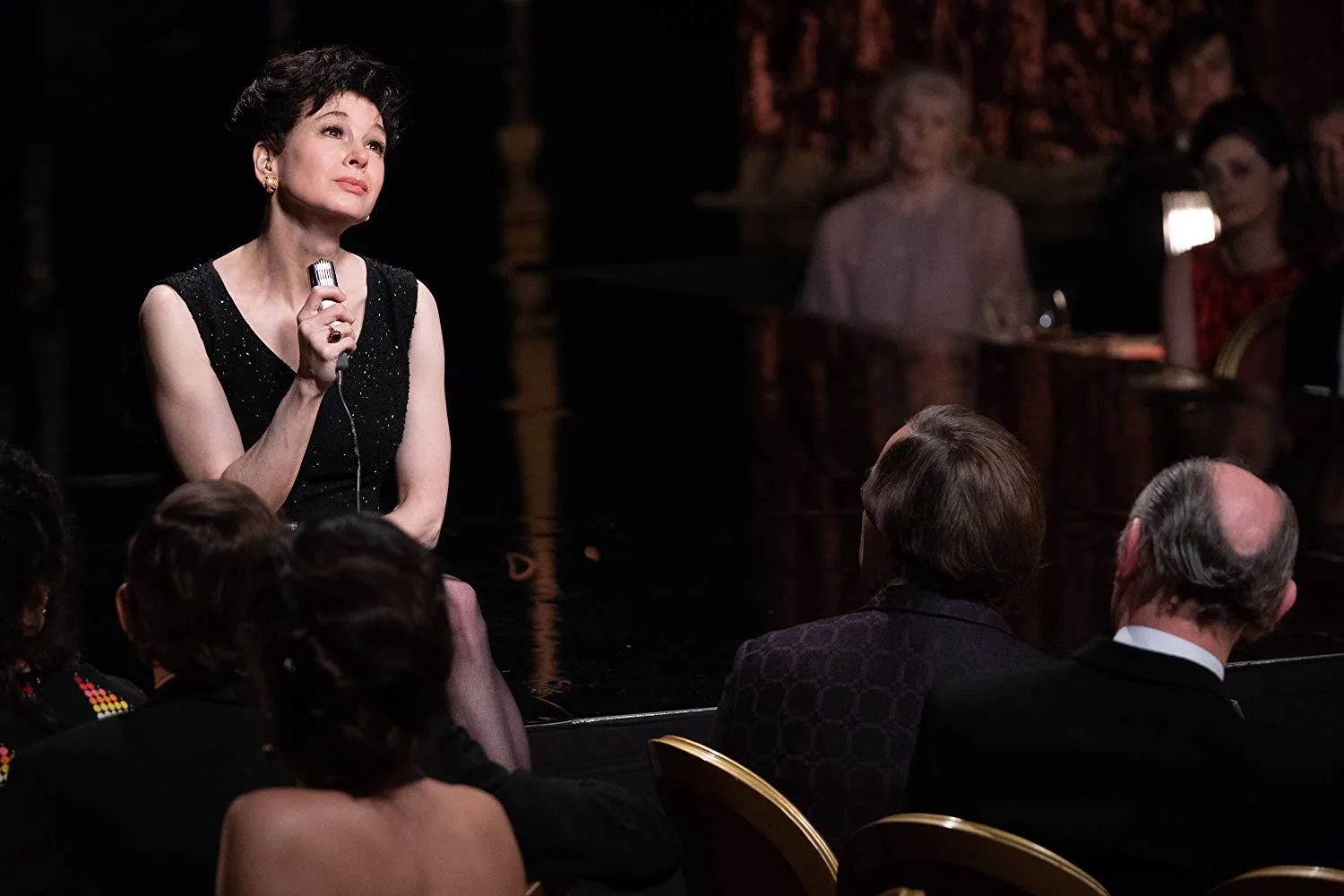Judy
Natalie Portman Teaches Acting
[imdb style=”white”]tt7549996[/imdb]
The story of Judy Garland in the twilight of her career is told in Judy. Three decades after her breakthrough role in The Wizard of Oz, Judy Garland (Renée Zellweger) is suffering from depression and substance abuse and is on the verge of losing custody of her two youngest kids to her ex-husband Sidney Luft (Rufus Sewell). Desperate for money to pay off her debts, Judy accepts an offer by Bernard Delfont (Michael Gambon) to travel to London for a five-week run of concerts. With the help of her personal assistant Rosalyn Wilder (Jessie Buckley), Judy is barely able to make it through the shows and her demons begin to catch up to her. A possible saviour comes in the form of entrepreneur Mickey Deans (Finn Wittrock), who follows Judy to London a promises a bright future for her and her kids.
Judy is a biopic about the latter days in the life and career of Judy Garland, adapted from the off-broadway play “End of the Rainbow” by Peter Quilter. By the point of the film’s 1969 time period, Judy Garland had become a shell of her former self, having many outstanding debts and a dependency on prescription drugs and alcohol. The origins of the middle-aged Judy’s vices can be traced back to the 1930s when a young Judy (Darci Shaw) was heavily controlled and exploited by Louis B. Mayer (Richard Cordery), during the production of The Wizard of Oz.

Probably one of the biggest talking points about Judy is how the film is seen as a comeback of sorts of Renée Zellweger, who has spent the better part of the last decade outside of the public eye, save for a brief return in 2016 for Briget Jones’ Baby. Indeed, Zellweger’s performance is probably one of the most notable aspects of the film, complete with her doing all her own singing. However, as a whole, the film isn’t the strongest and at times I would say that the film borders upon melodrama, particularly when it comes to Judy’s overwhelming desire to just be with her kids.
One thing that I will applaud Judy for doing is shining a very negative light on the Hollywood studio system, in the aftermath of the recent #MeToo movement. The film portrays the teenage Judy Garland as a victim of this system, as she was forbidden to do anything that wasn’t in the favour of Louis B. Mayer, who tells Judy in the film’s opening scene that she only has a career because of her singing voice. This definitely casts on The Wizard of Oz and it is unknown if I would ever be able to watch the film again without thinking about how poorly Judy Garland was being treated.
As is the case with many biopics, there is the decade about how factually accurate the film is and reportedly Judy Garland’s oldest daughter Liza Minnelli, briefly portrayed in the film by Gemma-Leah Devereux, did not give her blessing for Renée Zellweger’s performance of her mother. However, while the film does fall into some of the typical biopic traps, Zellweger is arguably the least of the film’s issues.


 Candlelight concerts bring the magic of a live, multi-sensory musical experience to awe-inspiring locations like never seen before in Toronto. Get your tickets now to discover the music of Taylor Swift at Metropolitan Community Church under the gentle glow of candlelight.
Candlelight concerts bring the magic of a live, multi-sensory musical experience to awe-inspiring locations like never seen before in Toronto. Get your tickets now to discover the music of Taylor Swift at Metropolitan Community Church under the gentle glow of candlelight.